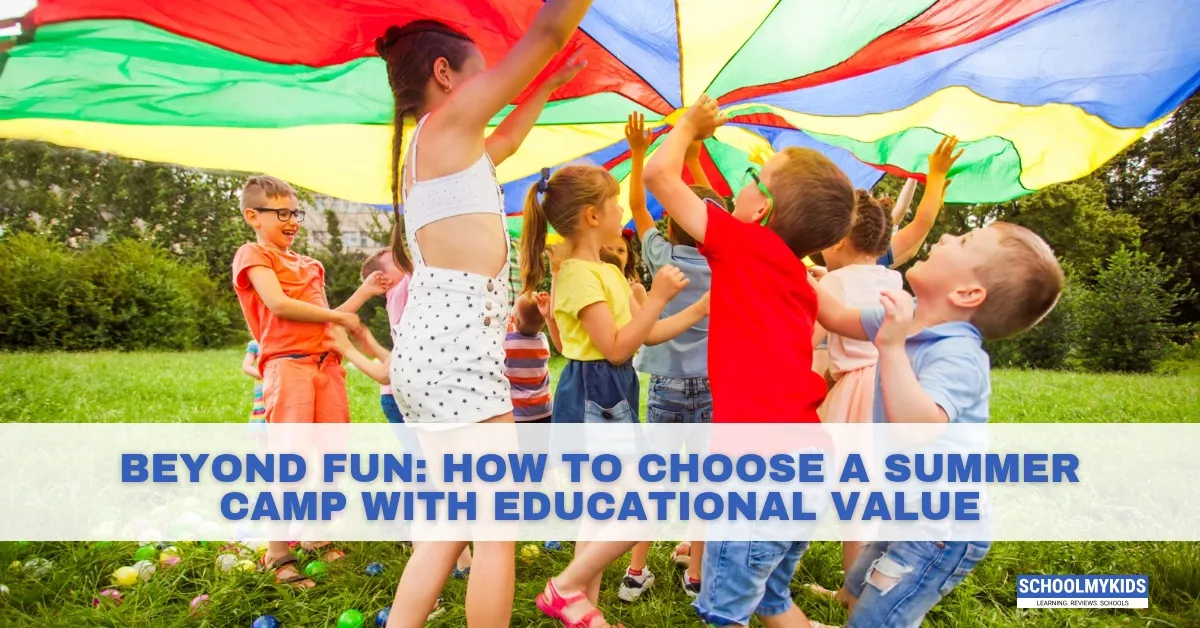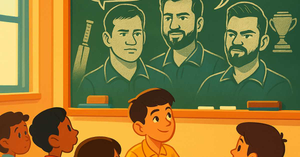Summer vacation is that time of the year when children are free from school pressure. But for parents, especially working ones, it often becomes a big question—“What should my child do during these two months?”
Many parents look for summer camps, and rightly so. But while fun is important, more and more parents now want something more—they want camps where their kids not only enjoy but also learn something useful. A camp that adds value, builds skills, and helps the child grow.
If you’re a parent thinking along these lines, this blog is for you. Let’s talk about everything you need to know before sending your child to a summer camp.
Why Parents Choose Summer Camps?
Let's face it - summer break is long, and keeping kids engaged for two whole months is no small challenge. Many of us send our children to summer camps not just for convenience, but because we truly believe these experiences help them grow.
Parents like you and me choose summer camps because they:
- Give children a break from screens and technology
- Provide structured activities during long summer days
- Offer opportunities to make new friends
- Allow kids to develop independence away from home
- Expose children to new skills and interests
Why Educational Summer Camps Matter?
While any camp experience can be valuable, educational camps offer that extra layer of meaningful learning. Children today face a competitive world, and summer breaks provide the perfect opportunity for them to develop skills without the pressure of school grades and exams.
Educational camps balance fun with learning in a way that feels natural. Your child might not even realize they're building their science knowledge while constructing a model rocket or strengthening their language skills while putting on a play!
What to Look For in Educational Summer Camps
Not all camps are created equal. Here's what I recommend considering when making your choice:
- Age-appropriate activities: A good camp should offer activities designed specifically for your child's developmental stage. What engages a 7-year-old will bore a 12-year-old, and what challenges a teenager might frustrate a younger child.
- Curriculum and Activities: Look for camps that incorporate learning themes such as science, arts, sports, or leadership. Activities should challenge children intellectually while being fun.
- Balance of structure and free time: Children need both guidance and the freedom to explore. Look for camps that schedule structured learning activities but also allow for unstructured play time.
- Qualified instructors: Ask about the background and experience of camp counselors. Are they teachers during the school year? Have they received special training?
- Small group sizes: Smaller groups mean more individual attention and better supervision. Ideally, look for camps with a low child-to-counselor ratio.
- Social and Emotional Development: Camps that promote teamwork, respect, and inclusion help children develop essential social skills. Observe if the camp encourages cooperation and empathy.
- Clear focus areas: The best educational camps have clear themes or focus areas, whether it's robotics, creative writing, or outdoor science. This helps children explore subjects that interest them.
Necessary Precautions
Safety always comes first. Before finalizing any camp, make sure to:
- Visit the camp location if possible
- Check for proper safety certifications and first aid training
- Ask about their emergency protocols
- Review their policy on electronics and social media
- Understand their approach to bullying prevention
- Confirm proper supervision during all activities
- Check reviews from other parents
How Camps Help Your Child?
- Social Skills and Confidence: Camps foster friendships and teach children how to work in teams, respect others, and communicate effectively.
- Academic and Cognitive Skills: Many camps include STEM, arts, or reading activities that stimulate the mind and prevent learning loss.
- Physical Fitness: Outdoor sports, hiking, swimming, and other activities improve health and build resilience.
- Emotional Growth: Facing challenges and trying new things helps children develop independence, resilience, and self-esteem.
- Leadership and Responsibility: Camps often include leadership roles and group projects, nurturing responsibility and decision-making skills.
Preparing Your Child for Camp
Even excited children can feel nervous about camp. Here's how you can help:
- Talk positively about the experience
- Practice being away from home with sleepovers at friends' or relatives' houses
- Let them help pack their bags
- Send a familiar item from home if it's an overnight camp
- Reassure them, it's normal to feel a bit homesick at first
- Remind them that making new friends takes time
Some Annual Educational Summer Camps in India
India offers several reputable summer camps that combine fun with learning:
- Doon School Summer Camp: Focuses on outdoor adventure, leadership, and environmental education.
- Krea Summer School | Krea University: Krea University offers a summer school program that focuses on interdisciplinary learning, critical thinking, and creativity.
- ISME Management Summer School | Atlas SkillTech University: This summer school is geared towards management and entrepreneurial skills, providing students with insights into business and innovation.
- Summer Startup Week | Masters’ Union: This program focuses on entrepreneurship and startups, providing students with hands-on experience in developing a business idea and pitching it to investors.
Conclusion
Choosing a summer camp with educational value is about balancing fun and learning. It’s a chance for your child to grow, explore, and build skills that will benefit them for years to come. Take your time to research, visit camps if possible, and involve your child in the decision. Remember, a well-chosen camp can be a life-changing experience—full of memories, friendships, and lessons that last a lifetime.








Be the first one to comment on this story.